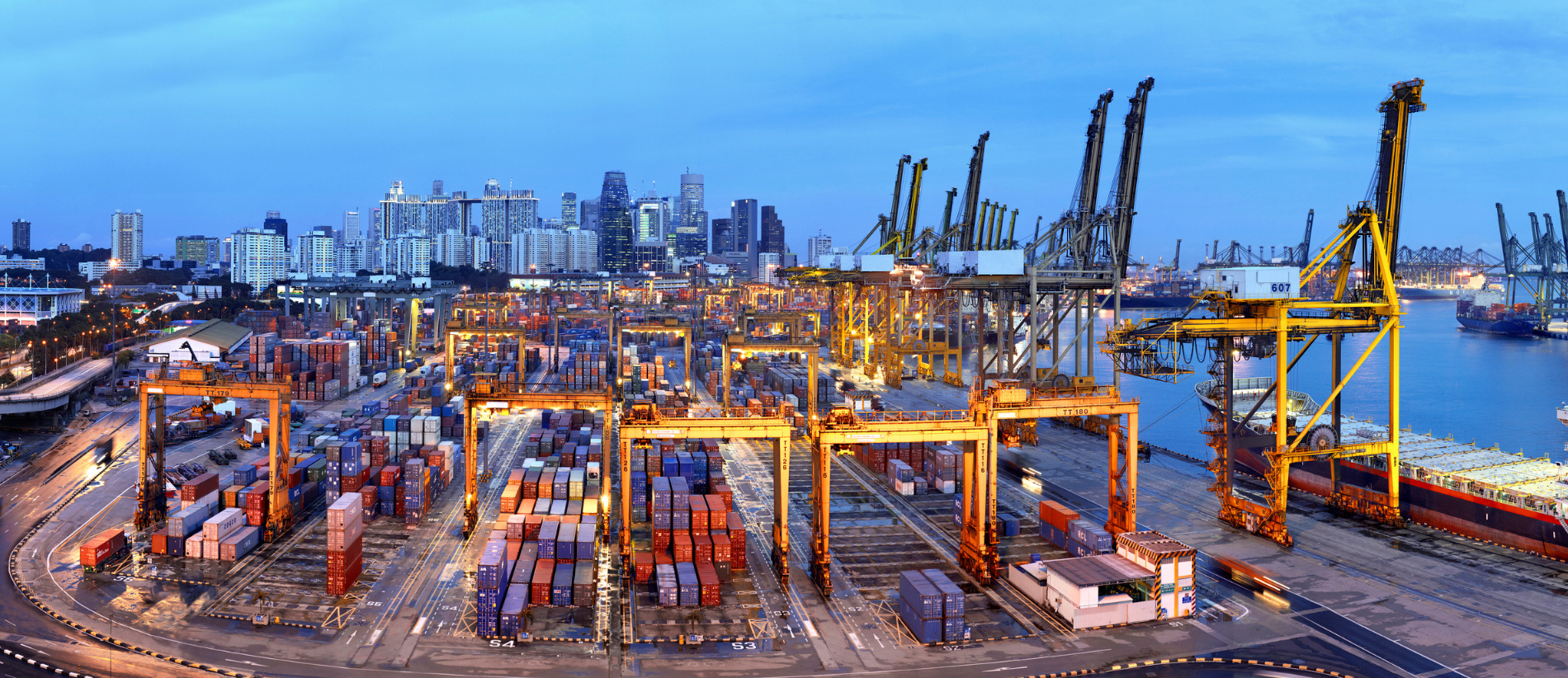There are increasing signs that the coronavirus Covid-19 outbreak will significantly impact international trade and the shipping industry.
Many manufacturers in the Hubei province, the centre of the outbreak, have paused production (opens a new window) and traffic is also disrupted in the region as part of efforts to contain the virus. Since the Chinese economy is highly integrated in the global economy, the epidemic is likely to have a broader impact on international supply chains.
China is not only the largest exporter in the world, it is also home to seven of the ten busiest ports and a major container shipping line. As the coronavirus continues to spread, the shipping industry is bracing for the inevitable impact it will have on the business.
There are many potential implications for the shipping industry for example with regards to crew and passenger health, difficulty with crew changes or the crew refusing to go to an affected area. There may also be delays at Chinese and subsequent ports of call; cargoes may no longer be available or no longer possible to load or discharge.
To date the International Maritime Organization (opens a new window) (IMO) is allowing trade in and out of China to continue without imposing direct travel restrictions. This could change depending on future advice released by the World Health Organization (WHO), as well as discretionary decisions being made by individual companies. Even though there is no mandatory disruption in trade at this time, there are still emerging risks, some of which are insurable, while others are absolutely excluded. Listed below are some of the key issues and potential implications that cargo owners and risk managers need to monitor closely.
Accumulation of Cargo
The value of accumulated goods in transit at a port or warehouse may exceed the accumulation limit allowed under the insurance contract. To ensure adequate coverage is in place and to determine if additional premiums will apply, the client should contact their Lockton team as soon as they become aware of the situation.
Delay
The shipment’s arrival at the insured destination beyond the anticipated date of arrival could have financial implications on all parties involved in the shipping transaction. In general, delay is not a covered cause of loss under the traditional insurance contract.
Delay Clause
The delay clause is a paramount warranty included in cargo insurance contracts that excludes coverage for losses due to delay even if the delay was caused by an insured peril.
Demurrage Charges
Excess time to load or unload a vessel, or the clearance of goods from the port of discharge in a prescribed time period, or the late return of containers, trailers or railcars may result in demurrage fees and/or late penalties charged to the shipper/owner of the goods. These demurrage charges are not recoverable under the cargo insurance contract unless the delay or retention of the units is at the instruction of the insurer for inspection or survey following a loss.
Deviation
In the event of unsafe ports, the vessel expressly reserves the right to deviate to another port than what is described on the bill of lading. The traditional cargo policy includes a deviation clause that allows for certain delays or deviations in transit without voiding coverage. However, not all cargo insurance contracts will cover the additional freight and forwarding costs associated with deviation. This is particularly the case if your client has a carrier issued cargo policy form vs. Lockton’s manuscript cargo forms.
Force Majeure
Many contracts with vendors, truckers, ocean carriers and warehousemen include a Force Majeure clause. Essentially, this clause exempts them from fulfilling obligations in case of unexpected or uncontrollable events such as the coronavirus outbreak. However, the actual events that constitute the force majeure should be clearly addressed in the contract.
Interruptions in Transit
Cargo insurance contracts are designed to cover goods while in due course of transit. The scope of coverage includes customary delays and interruptions in transit that are beyond the control of the insured. However, there are exceptions, as well as time limitations and reporting requirements. The client should contact their Lockton team as soon as they become aware of any risks that will impact their global supply chain.
Other risks to be monitored include disruption in deliveries, potential port closures and/or the slowing or disruption of port and logistics services and operations. Based on current information, vessel owners need strong evidence to demonstrate the nature of the risk and the unsafety of the port to substantiate their refusal to call at Chinese ports or other nearby ports. Major container lines such as Maersk have already begun reducing (opens a new window) their calls to ports in China which is causing delays and the rerouting of cargoes to other ports.
Lockton’s cargo teams are monitoring the situation closely to identify additional risks and developments. In the meantime, if you have clients with upcoming or current transit and/or storage exposures in the affected regions, we recommend having a discussion primarily to make them aware of the associated risks and their responsibilities under the insurance contract.
For further information, please contact:
Ian Franklin, Senior Vice President, Risk Solutions - Cargo & Logistics
Tel.: +44 (0)207933 2054

